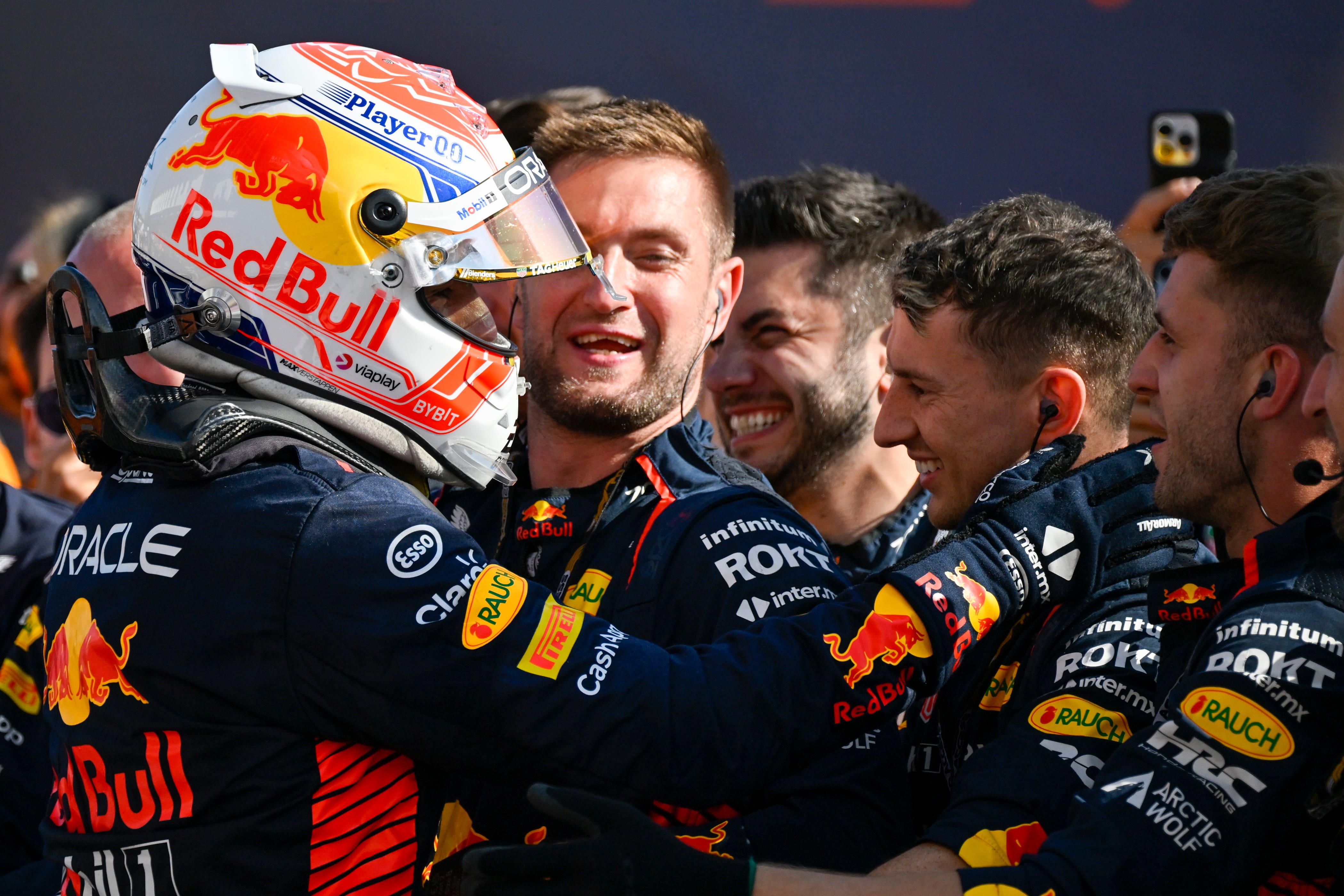How Max Verstappen and record-breaking Red Bull compare to Formula One greats
Red Bull have claimed 12 successive F1 wins following Verstappen’s triumph in Hungary.

Your support helps us to tell the story
From reproductive rights to climate change to Big Tech, The Independent is on the ground when the story is developing. Whether it's investigating the financials of Elon Musk's pro-Trump PAC or producing our latest documentary, 'The A Word', which shines a light on the American women fighting for reproductive rights, we know how important it is to parse out the facts from the messaging.
At such a critical moment in US history, we need reporters on the ground. Your donation allows us to keep sending journalists to speak to both sides of the story.
The Independent is trusted by Americans across the entire political spectrum. And unlike many other quality news outlets, we choose not to lock Americans out of our reporting and analysis with paywalls. We believe quality journalism should be available to everyone, paid for by those who can afford it.
Your support makes all the difference.Max Verstappen’s Hungarian Grand Prix victory gave his Red Bull team a record 12th successive Formula One race win.
Here, the PA news agency looks at how the dominant Dutchman and his team compare to the greats of the grid.
Prost and Senna’s record falls
Verstappen has won nine of this season’s 11 races, with team-mate Sergio Perez taking the other two.
Verstappen also won last season’s final race and not since the great McLaren pairing of Ayrton Senna and Alain Prost in 1988 has a single team dominated to such an extent.
That season began in Brazil and while Senna was disqualified from his home race for an illegal car change, Prost took the chequered flag.
Senna won in San Marino and he and Prost shared the next four races equally before Prost recorded a home win in the French Grand Prix.
Four straight victories for Senna followed before Ferrari’s Gerhard Berger broke the streak in Italy, the only race all season not won by McLaren as they and Senna won a championship double with Prost close behind in second in the drivers’ standings.
That is the case for Verstappen and Perez this season as well, albeit with Verstappen over 100 points clear of his team-mate.
Verstappen added Bahrain and Australia to last season’s success in Abu Dhabi, alternating at the start of the season with Perez’s wins in Saudi Arabia and Azerbaijan before taking sole control.
Mercedes had three separate runs of 10 successive wins during Lewis Hamilton’s period of dominance, with Michael Schumacher’s Ferrari team also hitting double figures in 2002.
Magnificent seven
Since the start of May, Verstappen has won the Miami, Monaco, Spanish, Canadian, Austrian, British and now Hungarian Grands Prix to equal the second-longest winning run for an individual driver.
Only Sebastian Vettel’s record of nine straight wins in 2013 remains for him to chase – victory in the next two races would see him equal that mark in front of his adoring home fans at August 27’s Dutch Grand Prix in Zandvoort.
Alberto Ascari has a claim to matching Vettel. The Italian won the last six races of the 1952 season and the Argentine Grand Prix at the start of 1953 before not entering the Indianapolis 500, which at the time was part of the drivers’ championship. He went on to win the Dutch and Belgian GPs on his next two starts.
Michael Schumacher won seven in a row in 2004, as did Nico Rosberg at the end of 2015 and the start of his 2016 title-winning season.
Schumacher also had a run of six across the 2000 and 2001 seasons while Hamilton’s longest run is five wins, as was Verstappen’s before his current streak.
He is on track to be the first driver ever to win over 80 per cent of races in a season – beating Ascari’s 75 per cent in 1952, when there were only eight races in total – while he has won over 93 per cent of the maximum points available with 281 of a possible 302 so far.